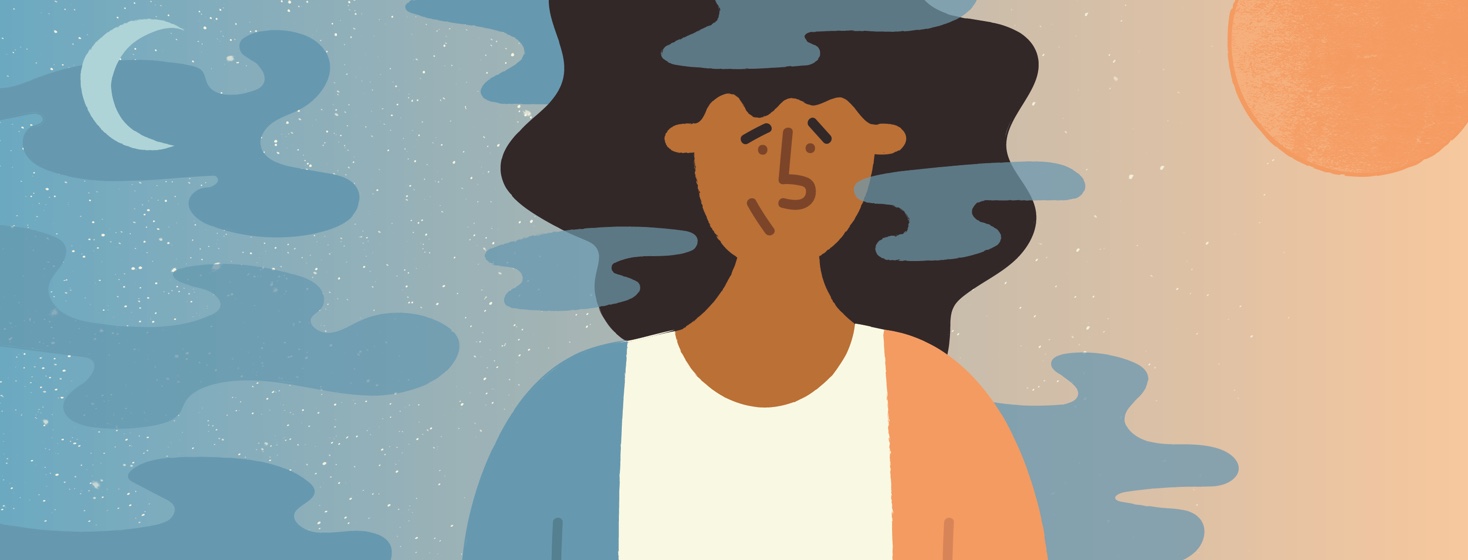Narcolepsy, Dreams, and the "Emotional Hangover"
Most people with narcolepsy will know what it’s like to experience wild dreams. With our brains hard-wired to lapse into REM at a moment’s notice, we can sometimes feel like we have a whole alternative universe to explore within our own minds, complete with seemingly-real and emotionally affecting experiences. This can become difficult when the emotions we feel in our dreams start to infringe on our waking lives...
Emotionally exhausted by my dream life
Throughout my teen years, before my diagnosis, I felt constantly exhausted by my dream life. I would wake most mornings feeling even more sleepy than when I went to bed. On top of the physical fatigue, I felt completely worn down by wave after wave of intense emotion that I’d experienced over the night.
Start a Forum
I can remember one time years later when I woke up not even remembering my dream but already sobbing. I simply couldn’t stop the tears. It took a long phone conversation with my partner at the time to ground me back into the present moment. At the time, I was terrified, as if my dreams had more control over my emotions than I did.
Seeking answers about my dreams
I began to call this an “emotional hangover.” The experience of feeling awash in the aftermath of the intense feelings brought up by my dreams. This could happen whether or not I could even remember the events that had caused them!
I started learning about the strong links between narcolepsy and dreaming ever since I was diagnosed. Quickly, I became fascinated with trying to demystify my dreams and how they function. More recently, I’ve finally solidified my understanding of what causes the emotional hangover in our brains.
Discovering a hormonal explanation
According to neuropsychologist Sanam Hafeez, when we dream, our brains experience these fantastical events in almost the exact same way as when we experience real events while awake.1 The brain responds to new stimuli as they come up, and emits hormones accordingly.
For example, say you are having a frightening dream where a murderer has just started chasing you with a knife. Your brain will suddenly be flooded with the stress hormones cortisol and adrenaline. Just as when responding to a real-life threat, these hormones will make your heart rate quicken, prime your muscles for activity, and make your hair stand on end.
The lasting effects of hormonal rushes
These hormones do not diminish straight away, and can actually linger in the body for hours after the fact. Using the previous example: lingering cortisol in the body might raise stress levels, cause unnecessary anxiety, or other mood/health effects.
So when you are going through extremely intense emotional experiences in your sleep every night, your body is waking up still reeling, as if you had gone through them in real life. For this reason, it makes perfect sense that we feel an “emotional hangover” upon awakening!
Unravelling my self-criticism
For years, I felt as if my intense emotions after a dream meant that I was losing my mind, that I couldn’t tell the difference between what is real and what is not. Or perhaps I was so sensitive that even my dreams were too much for me to bear.
In understanding that my dreams actually have a physiological impact that I can’t control, I am able to see my reactions as a perfectly normal (although sometimes frustrating) part of living with my narcolepsy.
Have you ever experienced an “emotional hangover” from your dreams? I’d love to hear from you in the comments if this is common for any others with narcolepsy, as well as what tricks you might have for coping with it.

Join the conversation